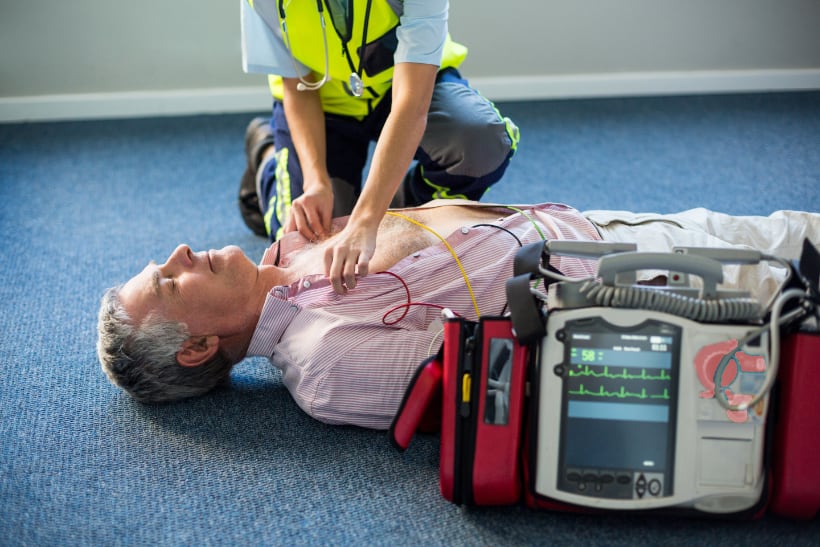By Dr Aswin Babu
In the United Kingdom (UK), there are around 30,000 out of hospital (OOH) cardiac arrests each year attended by paramedics. However, survival rates remain staggeringly low with a survival rate estimated at 10%. In order to shift the curve on these outcomes, studies have examined the role of early use of extracorporeal cardio-pulmonary resuscitation (CPR) when rivalled to standard CPR. In particular, the ‘ARREST’ trial demonstrated significant improvement in survival to hospital discharge with extracorporeal CPR whereas the ‘Prague OHCA’ study did not reveal any significant differences between both strategies.
Suverein et al (2023) recently published a multi-centre, randomised controlled trial (RCT) performed in the Netherlands assessing this important clinical question. The study included patients aged between 18-70 years of age who had an OOH cardiac arrest with an initial ventricular arrhythmia and did not have return of spontaneous circulation within 15 minutes after the initiation of CPR. These patients were then randomised to either early use of extracorporeal CPR or conventional CPR. Primary outcome was 30-day survival with a favourable neurological outcome as judged by a cerebral performance category (CPC) score of 1 or 2.
Out of 160 patients, 64 underwent conventional CPR and 70 were allocated to extracorporeal CPR. Twenty-six patients did not meet the inclusion criteria. At 30 days there were no differences in the primary outcome between both groups. In the extracorporeal CPR group, 14 patients (20%) survived to 30 days compared to 10 patients (16%) in the conventional treatment arm (p=0.52). These results were equivalent at 6 months. Additionally, there were also no differences in serious adverse events with an average of 1 serious adverse event per patient in both groups.
This multi-centre RCT failed to show an improvement in outcomes with extracorporeal CPR when compared to standard treatment in OOH cardiac arrest patients with refractory ventricular arrhythmias. It should be noted that the conventional arm had a considerably enhanced survival rate of 16% when compared to the UK data of 10%. Further studies are required to look at the potential benefit in the earlier use of extracorporeal CPR at the scene of arrest rather than initiation at arrival to hospital.
Link to article – https://www.nejm.org/doi/full/10.1056/NEJMoa2204511

